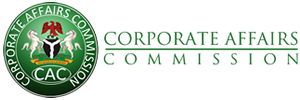The chaotic drug distribution system in Nigeria has been a sore point to drug regulatory Agencies, especially to NAFDAC. This disorderly chain of movement of medicine in the supply chain, from the manufacturer to the final consumer is inimical to the efficacy of pharmaceutical products and is the primary cause of Substandard and Falsified (SF) medicines in circulation.
To eliminate SFs, the Presidential Committee on Pharmaceutical Sector Reform (PCPSR), constituted in 2003 to among others to develop strategies towards the sanitization of the drug distribution system in Nigeria. The Coordinated Wholesale Centres (CWC) is a product of the PCPSR. The Coordinating Minister of Health and Social Welfare, Prof Ali Pate, is one of the architects of CWC and in full support of the Centres.
The PCPSR recommended the development of National Drug Distribution Guidelines (NDDG) as a key strategy to coordinate the drug distribution sub-sector and all operators in the open drug markets in Kano, Lagos, Onitsha and Aba were given December 2018 as deadline by the then Minister of Health to relocate to CWC, Prof Isaac Adewole.
The NDDG gives a clear mandate to the regulatory Agencies, Pharmacy Council of Nigeria (PCN), and the National Agency for Food and Drug Administration and Control (NAFDAC) to ensure its full implementation and compliance by all concerned (stakeholders).
The CWC in Kano was the first to be built as part of ensuring proper regulation of drug distribution and sale in Nigeria, and mitigation of SFs. NAFDAC and Pharmacy Council of Nigeria (PCN) are the two regulatory agencies mandated to regulate the distribution and sale of drugs in the country. The two agencies have offices in the newly built CWC Centre in Kano. The mandate of NAFDAC is to control and regulate the importation, exportation, distribution, advertisement, sale and use of food, drugs, medical devices, cosmetics, chemicals, packaged water and detergents. PCN is charged with regulating pharmacy practice sites (where some of NAFDAC’s regulated products are sold) and the practitioners, including the patent and proprietary medicine vendors that use the open drug markets to sell medicines.
Over the years, the medicine dealers in Kano have resisted all attempts by concerned regulatory authorities to relocate their pharmaceutical businesses from the open drug markets in Mai Karami Plaza, Niger Street, Malam Kato and Sabon Gari areas of Kano to the Coordinated Wholesale Centres in Dangwauro area of the state. The dealers even filed a suit in court seeking to reject relocation to the Coordinated Wholesale Centre.
A landmark judgement was made by Justice Simon Amobeda in Kano Federal High Court on February 16, 2024, who ordered the open drug marketers in Kano to relocate their stores to Dangwauro Coordinated Wholesale Center (CWC), Zaria Road, Kano.
Sequel to this court ruling the National Agency for Food and Drug Administration and Control (NAFDAC) in conjunction with the Pharmacy Council of Nigeria (PCN) on 17th and 18th of February 2024 embarked on an enforcement action to cause the relocation of the medicine dealers from the open drug markets of Sabon Gari, Malam Kato and Mai Karaimi to the Coordinated Wholesale Centre.
A total of one thousand three hundred and seventy (1,370) wholesale medicine outlets and packing stores were sealed in the three open drug markets. The owners of these outlets are to from Monday 19th February 2024 report to the offices of NAFDAC and PCN, at the Coordinated Wholesale Centre in Dangwauro area of Kano to arrange for the relocation of their businesses to the Centre.
The judgement that the open drug marketers should move to the Kano CWC is monumental because the control of drug distribution will be better regulated and prevalence of substandard medicines will be mitigated significantly. Since the beginnng of my tenure in 2017, the drive to mitigate SFs is one of the eight pillars of my administration, and the efforts that have been made led NAFDAC to the attainment of Maturity Level 3 of both NAFDAC and PCN. NAFDAC had seven modules while PCN had one module (Site License) of the WHO Global Benchmarking (GBT).
The continued fight against SFs to make our citizens healthier has been blessed by the judgement by Justice Amobeda. It is most significant for both NAFDAC and PCN because it shows a resolve of the two Agencies to get rid of SFs in our markets and sets a good pathway toward attainment of Maturity Level 4.
Justice Amobeda judgement will set the precedence that open drug marketers in other three big cities where there is large trading of medicines- Lagos, Onitsha and Aba – should be ready to move into the CWCs in the respective cities as soon as such facilities are built.
Having the CWCs in the different cities is also part of the activities of the Federal Task Force that is headquartered in NAFDAC but operationalized in collaboration with the States. The CMHSW will need to implore state governors and governments to please join hands with NAFDAC and PCN as part of the Federal Task force to support the building of the CWCs in other cities. A brief on this will be sent to the Honourable CMHSW soon.
The medicine dealers should see this move to the Coordinated Wholesale Centre as a positive move for the survival of public health and as part of efforts to continue the fight against Substandard and Falsified medicines.
Removing SFs from the circulation will make Nigerians healthier and since only healthy bodies can contribute positively to the economy, it will make Nigerians wealthier and the economy better.






